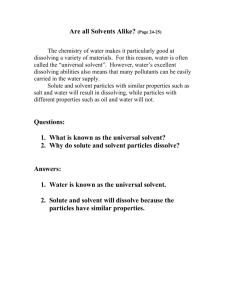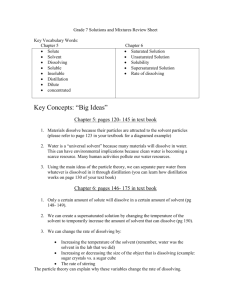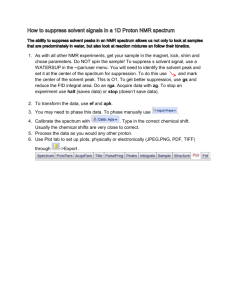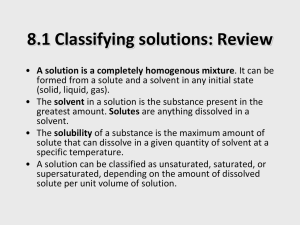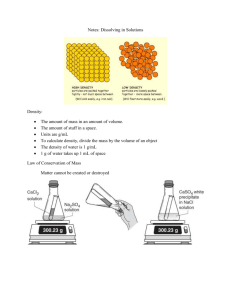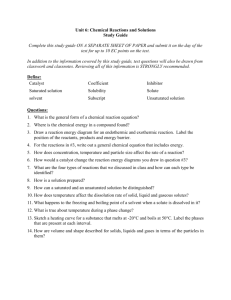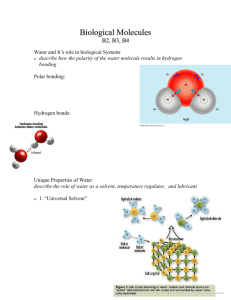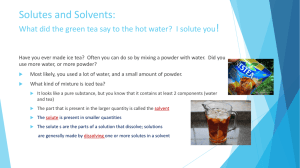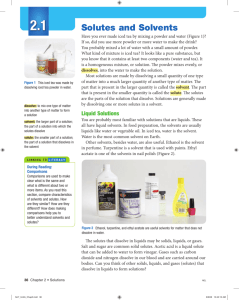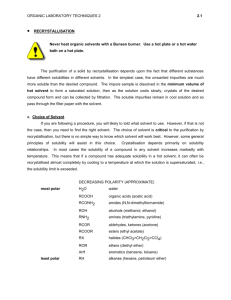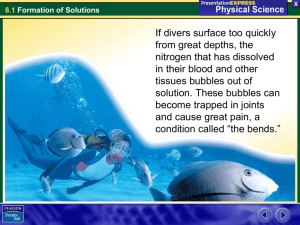Concept: Water (polar, universal)
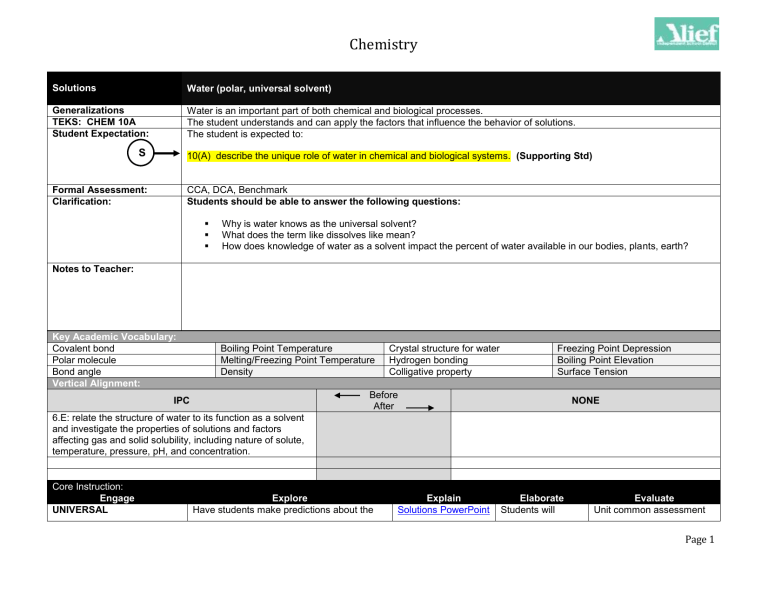
Chemistry
Solutions Water (polar, universal solvent)
Generalizations
TEKS: CHEM 10A
Student Expectation:
S
Formal Assessment:
Clarification:
Water is an important part of both chemical and biological processes.
The student understands and can apply the factors that influence the behavior of solutions.
The student is expected to:
10(A) describe the unique role of water in chemical and biological systems. (Supporting Std)
CCA, DCA, Benchmark
Students should be able to answer the following questions:
Why is water knows as the universal solvent?
What does the term like dissolves like mean?
How does knowledge of water as a solvent impact the percent of water available in our bodies, plants, earth?
Notes to Teacher:
Key Academic Vocabulary:
Covalent bond
Polar molecule
Bond angle
Vertical Alignment:
Boiling Point Temperature
Melting/Freezing Point Temperature
Density
Crystal structure for water
Hydrogen bonding
Colligative property
IPC
Before
After
6.E: relate the structure of water to its function as a solvent and investigate the properties of solutions and factors affecting gas and solid solubility, including nature of solute, temperature, pressure, pH, and concentration.
Core Instruction:
Engage
UNIVERSAL
Explore
Have students make predictions about the
Explain Elaborate
Solutions PowerPoint Students will
Freezing Point Depression
Boiling Point Elevation
Surface Tension
NONE
Evaluate
Unit common assessment
Page 1
Chemistry
Core Instruction:
Engage
GENERALIZATION: Water has unique properties.
Engagement:
1.Set up a demonstration with two large beakers of water.
Show the students two solutes. Unknown to them, one solute is soluble in water and one is not. Use sugar or salt as the soluble chemical and perhaps sulfur or
Magnesium carbonate as the insoluble chemical. Drop some of each chemical into the water and observe whether they dissolve. Inquire what dissolving means to the students and explain how the structure of a solvent affects its ability to dissolve solutes.
2. Show mixtures that have two substances that do not dissolve. Examples might include Italian salad dressing, ocean in a bottle. Discuss how dissolving is a physical change and how students can recognize if dissolving has taken place.
Explore solubility of 8 substances in water. The chart for those predictions is part of the activity:
Water —The Universal Solvent . Have students make predictions, and share their ideas/predictions in a class discussion.
Explain
(alter this document as you see fit, using what you need and deleting what you do not need to use).
After the concept is present to students, return to the Explore activity and discuss if their predictions should be adjusted.
If so, then inquire as to why they believe the need to adjust their predictions.
Elaborate complete the activity ( Water —
The Universal
Solvent ).
Give students the opportunity to answer the questions on their own, then discuss/debrief with the class.
OR
Slushy Lab
Evaluate
Exit Ticket
Quiz
Page 2
Chemistry
